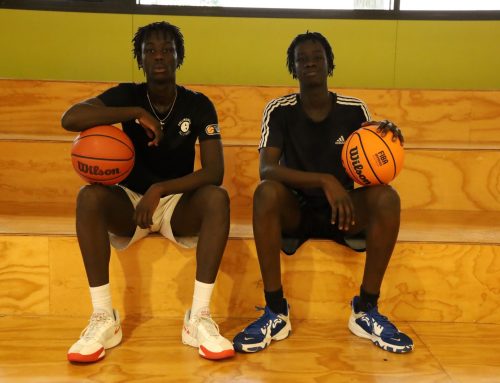
How Athletes Benefit From Intermittent Fasting? 10 Things to Know
You might wonder how athletes can keep fast while having the most strenuous routine including training and practice matches. But we are here to tell you that fasting is for athletes as well. Just like normal people, athletes can do intermittent fasting to benefit their bodies. Besides, intermittent fasting is a trendy thing and a popular way of eating as per the statements of medical persons and internet influencers.
However, the question is should athletes give it a go? Why not? Because it has casual weight loss effects and can even fulfil the performance goals for the athletes. Keep on reading to get knowledge of intermittent fasting and its benefits for athletes. You can find the most wanted list of the 10 intermittent fasting things to know as well.
Intermittent Fasting (IF)
To keep it simple, you can say that IF is the eating pattern, not a diet plan. In IF, you can eat as well but there is a time limit to it. Also, you are fasting at the same time. Altogether you are alternating between the hours of eating and fasting.
Forms of IF
It has a popular form which is called the 16/8 hours model. In this type, you are generally willing to dedicate the 16 hours of your day to fasting and the remaining 8 hours are for filling your belly. When we say 8 hours of eating, it doesn’t mean that you have to eat straight for 8 hours rather it is eating within it.
Another possible and known form of IF is the 5:2 days model. This model is perceived as 5 days of normal eating and 2 days of monitoring calorie intake. Usually, for 2 days it is suitable to keep the calorie count at 500 or 600.
Other than these two models, you can do the IF once a week. All you have to do is select a day when tasks are less hectic. It may be a day of weekend. So you can spare a day of the week and fast for a straight 24 hours.
Related Article: Fasting vs Calorie Restriction!
Why Athletes are trying IF?
As we mentioned IF is a sort of eating trend. So athletes should be the ones following it. The main goal for every athlete is to perform well. Even if they win a match they still look for a way to maximize their potential and the strength to challenge them and break their records.
The performance-boosting factors always amaze the athletes. Therefore the sole reason for the athletes to try IF is the fasting benefits on mental, physical and athletic performance. Also, athletes can try IF to improve their bodies, keep them in good health or any other reason to bash their insecurities and feel confident.
Health Benefits
Athletes are majorly drawn towards intermittent fasting to pursue health benefits. Fasting can naturally speed up the metabolic rate at which the body is working. This means the boost up metabolism can increase the performance efficiency of the body and its cellular processes. Weight loss help from the fast is a bonus point for athletes who require lightweight bodies. Other health benefits that come with fasting may be longevity, a good-shaped gut microbiome, detoxing, strong immunity and regulation of the body’s hormones.
Source of Fuel and Nutrients
It is true that eating good foods is like providing valuable nutrients for the body’s functions. Fasting can give you nutrients as well. When your body is fasting, it changes the regular source of energy from glucose to fats (ketones). This shift has epic benefits for endurance sports as the fats give a constant supply of fuel to the body.
Adaptations of Sports Training
A fasting body can easily adapt to the training routines of different sports. Especially for endurance athletes, fasting helps them with prolonged workout hours. Athletes can develop positive outcomes and adaptations while fasting. Besides, intermittent fasting itself feels like resistance training. Even if you are not exercising or training or maybe at rest in your bed, your body is still practising like an athlete.
10 Things to Know about IF as an Athlete
Here are the 10 things to note down, if you are into athleticism.
1. Time-restricted eating has many forms as it is not a single method.
Fasting is simple to adapt but it can be different for everyone. It is usually done at various difficulty levels. On top of that, there is the process of time-restricted feeding, the famous 16-8 trick. Practically, you are unknowingly fasting if you are on an empty stomach for about 8 hours or more. Most people start fasting during nighttime as it is the easiest. Other forms can be alternate day fast or a whole day fast. But these two forms are not suitable for athletes as they don’t benefit the training hours and calories for sports.
2. You need more energy for endurance sports than others.
Endurance training is the toughest thing and you need to grind more in turn you have to eat more. This type of gruel requires you to fill up your fuel tanks. Therefore, a 10-hour eating window may work. But it is not true for all of you especially the athletes that have to train late at night or early mornings. Frequent fueling to your body such as eating for every 4 hours can build up the muscles. This way you can have extra small meals with 3 main meals throughout the day.
3. You can try eating for 10 hours rather than 8 hours for a successful fasting experience.
Fasting is a successful approach mainly if you focus on eating within 10 hours. Instead of the conventional 8-hour eating window, the athlete’s body is more likely to accept the 10-hour eating window. Because of the constant training and gym sessions, athletes have to eat more than the normal person. Therefore eating within 10 hours gives your body two additional hours to fill up. These 2 hours can be spent on eating a quick snack or a small nutritious meal.
4. You must have enough carbs to keep high glycogen levels.
For athletes more carbohydrates in a meal are better. Usual glucose levels should be high for endurance athletes. The higher amounts of carbs you eat are increasing the glucose or glycogen levels. For adapting and the best training outcomes, you have to stay away from glycogen depletion. This indirectly means preventing the glycogen from dropping and loading up the carbs on your plate. If your body has lower glucose, you are most likely to suffer during strength training sessions. Although lower glucose is a good chance for the body to lose extra fat still you are hurting your athletic performance which is a big turn-off for sports.
5. Store up glycogen for energy one night before fasting.
You need snacks before and after training specifically for high-impact exercise. If you have early morning training, you need to prepare beforehand. You can store more carbohydrates during the night before training. Moreover, for an hour-long smooth workout glycogen has to be full. But when you have to train for more hours, it might not be an easy task as you would get tired. And in extreme conditions, you can faint too.
6. Athletes can benefit from Intuitive eating.
Intermittent fasting kills the intuitive eating. This type of eating depends on the mood and hunger cues, so you can eat whenever you want and stop it when feeling full. Intuitive eating is beneficial to an athlete’s body as they are two times more active physically than the normal person and need double food as well. In addition, intermittent fasting sets the schedule of your eating which messes up intuitive eating. Therefore, if you are going to try intermittent fasting, keep your sugar levels even to feed your muscles.
7. Endurance athlete needs extra calories to avoid diet crashes.
The general purpose of intermittent fasting is to live up to weight loss goals. But athletes are mostly after performance goals. In that sense IF may not suit the athletes because they are fueling up extra calories to improve their athletic edge. Moreover, you cannot afford to deviate from your diet plans for the sake of your endurance. And IF means you are limiting the eating hours thereby you won’t be getting the perfect nutrition. Also, a fasting mindset lets you eat bigger portions which is not ideal for digestion.
8. Fill up your plate with protein and do time-restricted eating.
Protein powders, shakes and any sort of protein sources are like an essence for athletes or gym buddies. Of course, carbs give you energy but protein is a need as well because it can be good for satiation. You need to feel full for a longer period as for the rest of the set hours your body needs to execute intermittent fasting. Alongside bulking up carbs, you should store a good amount of protein one night before training and fasting.
Related Article: Role of Protein in Sports Nutrition: How Much is Enough?
9. Overnight muscle recovery is easy with Time-restricted eating.
Athletes can boost their physical performance by spending more hours on training and workouts but the most important thing is the rest period. Obviously, the recovery phase is critical as if your body is over-burning, your muscles and its filaments can rupture easily. Therefore intermittent fasting gives muscles a chance to recover completely overnight. This is possible because fast during the day prolongs the sleep time during night. Peaceful sleep allows the body to rest and recover well. After a good sleep, you’ll be more energized the next morning.
Try Muscle Performance Stack For Quick Recovery!
10. Meal and bed Timing is what athletes need to stay on track.
Meal planning, fasting and circadian rhythms need to be organized neatly. If you want a performance boost, higher energy levels and motivation, you need to schedule your meal and bed routines. This way your circadian rhythms can stay on track which further helps you to down shadow the stress levels and nervousness. Also, your workout sessions should be aligned within the morning hours to maximize your potential.
Related Article: 7 Pro Athlete Sleep Hacks for Peak Performance
Is Intermittent Fasting Good For Athletes And Sports Performance?
Yes, IF can be practised by any sportsperson. It has tons of benefits for physical health. Majorly, it can help balance the body composition. Also, it does not hurt physical and athletic performance unless you are going for a 24-hour fast without pre-fueling the body. Your body can preserve lean muscle mass during a fast if the eating window is for longer hours like 8-10 hours. Research on intermittent fasting claims that athletes can have the maximum power and success rate when IF is approached correctly.
Related Article: CBD for Athletes: Does It Really Maximize Athletic Recovery And Performance?
What Athletes Say About Ramadan Fasting?
Ramadan fast is different from intermittent fasting because during Ramadan fast you don’t get an eating window between the fasting hours. You also cannot consume liquid stuff like water, coffee or any fluid/drink. A study on fasting during Ramadan month discovers that performance can be reduced as a result of fasting. Overall, there was a decline in the body speed and endurance as well. Adding to it, fasting continuously for 3 days in Ramadan can reduce sports performance. This happens because, in Ramadan, there is less consumption of calories than the athletic body needs. However, a recent study contradicts that Ramadan won’t reduce performance if you are taking the right calories and sleeping enough.
Ending Remarks
Athletes should consider their body goals before trying intermittent fasting. If they are boosting the performance, IF may not be ideal because they have to load up nutrients to chase their opponents. However, if you have got other goals up your sleeves such as weight loss then you won’t find any better option other than IF. Fasting or time-restricted feeding catches up the fat oxidation and burns it. Also, you are eating less than a normal day. This induces the calorie deficit which the body copes with breaking the fatty tissues.
As always, you cannot conclude before trying because everybody is unique. Some can adapt to things pretty well while others do not. But you have to talk with your fitness trainer so you won’t end up hurting your performance. If you see a positive influence of IF and your body is taking it well, stick to it. Otherwise, ditch it!
The choice of IF can depend on your sports. If you are a high-level athlete then IF is not for you. As for recreational athletes, you are welcome to try IF.



